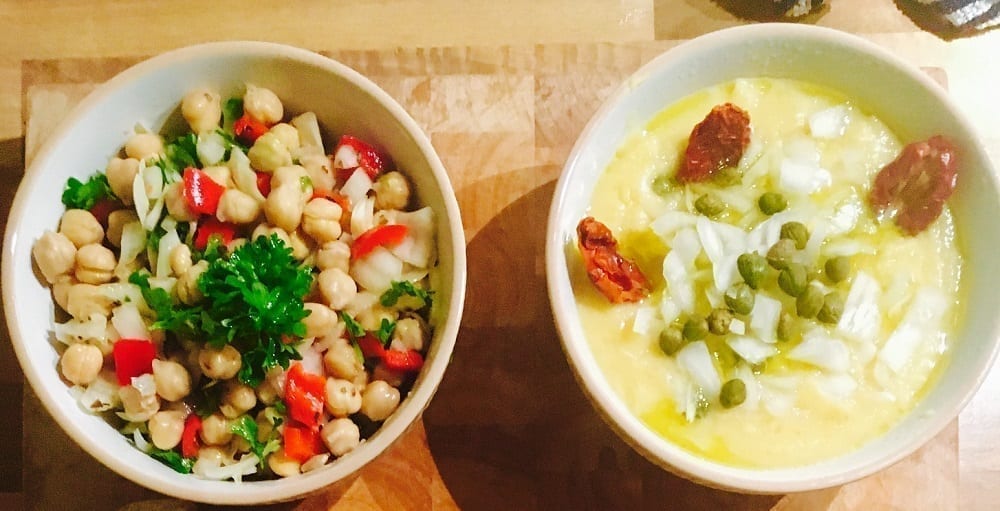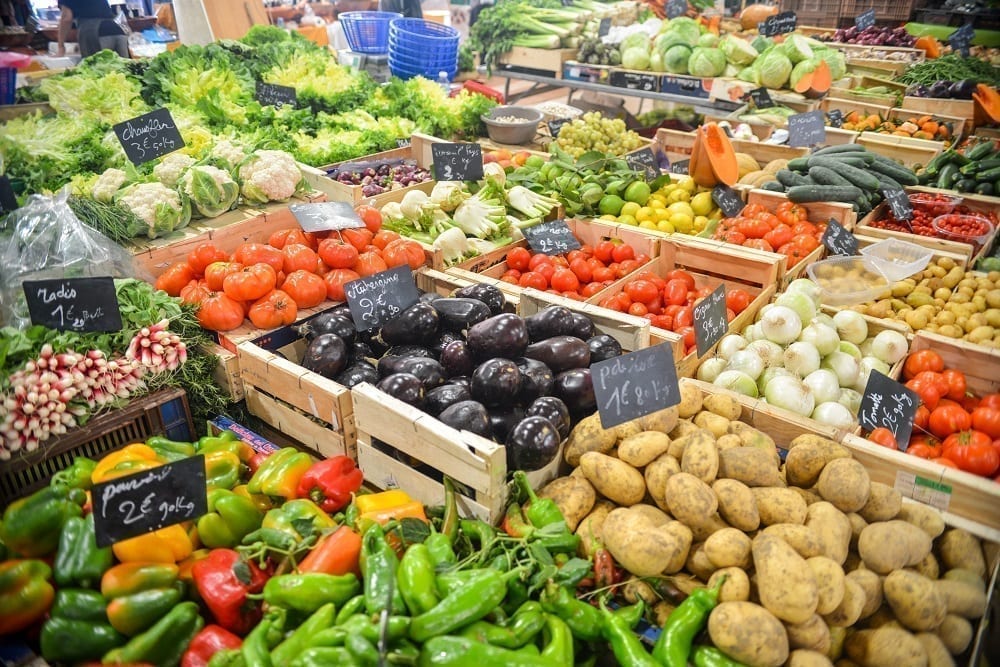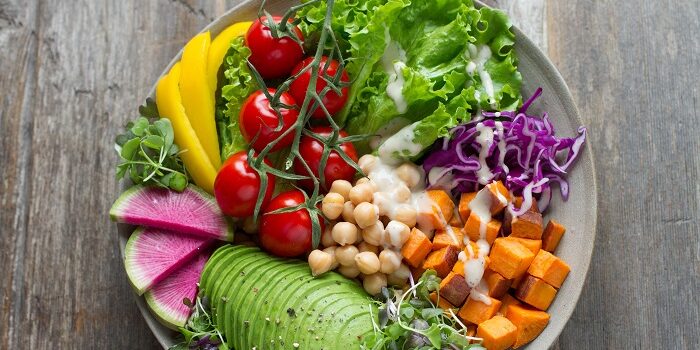10 Tips on How to Start the Mediterranean Diet

After spending some time in Crete, I can say that I understand what it is like to live like a local. I ate out at many of the local restaurants and mountain taverns and from this got many insights. I grew to love some of the staple dishes and so made sure to cultivate them into my own diet over time.
What is the Mediterranean Diet?
The Mediterranean Diet is a diet typical to the Mediterranean countries which is abundant in vegetables and fruit, whole-grains, legumes and olive oil. It boasts many health benefits such as heart health, brain health, cancer protection and longevity.
The Mediterranean diet is a primarily plant-based eating plan that includes daily intake of whole grains, olive oil, fruits, vegetables, beans and other legumes, nuts, herbs, and spices. Other foods like animal proteins are eaten in smaller quantities, with the preferred animal protein being fish and seafood.
Harvard School of Public Health
10 Tips on How to Start the Mediterranean Diet
1. Eat Beans and Legumes
• Focus on and enjoy dishes with lentils, chickpeas or garbanzos, butter beans, white beans, fava beans, green beans and peas.
• Check out 3 common but tasty mediterranean dishes. Of the three, the Chickpeas salad is the one that I would make the most often – so quick and simple to make.

2. Enjoy Mediterranean Vegetable Dishes
Greeks consume about 17 oz. (500 grams) of fruits and vegetables a day. The mediterranean vegetable dishes that they have for the main course is what really sets them apart. Most Greeks consume vegetables as a main dish at least 2-3 times a week.
These dishes called lathera, which means “the ones in oil,” are a combination of vegetables, herbs, tomatoes and olive oil. Common vegetables used are green beans, peas, eggplants, leeks, artichokes, cauliflowers and okra. One serving is a large plate, which is about 3 servings of vegetables.
• One that I often cook is Spanakorizo. Handy one to make on a Sunday to keep me going for most of the week. I use this website a lot for recipe ideas.
• Eat lathero with some bread and a chunk of feta.
• Serve greens with everything.
3. Use Olive Oil
• Greeks consume 2-3 table-spoons of olive oil per day. Consider to include up to this amount.
• Take note that there are a lot of fake Olive Oil Brands out there – You want to buy the real deal. I do recommend these guys – I stock up every time I go to London.
*A recent study on Olive oil indicates that it preserves memory and protects the brain against dementia. It does this by promting the brain to clear our harmful debris.
4. Enjoy a lighter dinner, if you have had a big lunch
• Consider a large hearty salad using whatever is in season.
• Supplement with nuts and cheese and fruit and of course, olive oil.
5. Enjoy the cooking experience
In Greek culture, cooking is a spiritual experience that’s highly celebrated and respected. Cooking connects us to ourselves, to other people, and to nature.
• Create a cheerful mood when cooking.
• Get your head out of your cookbook and experiment.
6. Disconnect over meal-times
• Be mindful of the food you’re eating and focus on the meal in front of you.
• Completely relax and enjoy.
• Don’t answer phones or watch television, particularly when in the company of others.
7. Live on fruit and vegetables your island has produced
• Source ingredients by visiting local farmer’s markets, which sell a variety of seasonal fresh organic ingredients at lower prices than their retail counterparts.
• Source remaining organic ingredients with foods from grocery stores and local international food stores that sell imported Greek and European ingredients.
• Plan your meals around what’s in season in your area. Insistence should be placed on absolute freshness & simplicity.

8. Eat salads with every meal
• Make salads from seasonal vegetables.
• Include a combination of olive oil, vinegar, herbs, lemon juice, salt, and honey in salad dressings.
9. Rely on herbs
• Use garlic, lemon, onion, oregano, parsley, laurel, mint, dill, cinnamon, cumin, and allspice.
• Add oregano to meat, salads, potatoes, bread, sauces, marinades and salad dressings.
10. Enjoy dessert but make yourself
Allow yourself to indulge, but only in treats that you make yourself.
• Take the time to make your own homemade sweet treat, and sit down to savor.
• Can be something simple and fresh like seasonal fruit, yogurt with honey, nuts and cinnamon, or can be something more complex, like baklava.
Resources –
http://www.olivetomato.com/live-longer-with-the-greek-lifestyle-eat-plants-and-drink-wine/,
http://www.olivetomato.com/5-ways-to-eat-more-vegetables-the-greek-way/,
http://www.olivetomato.com/how-to-use-olive-oil-to-get-the-most-benefits/


